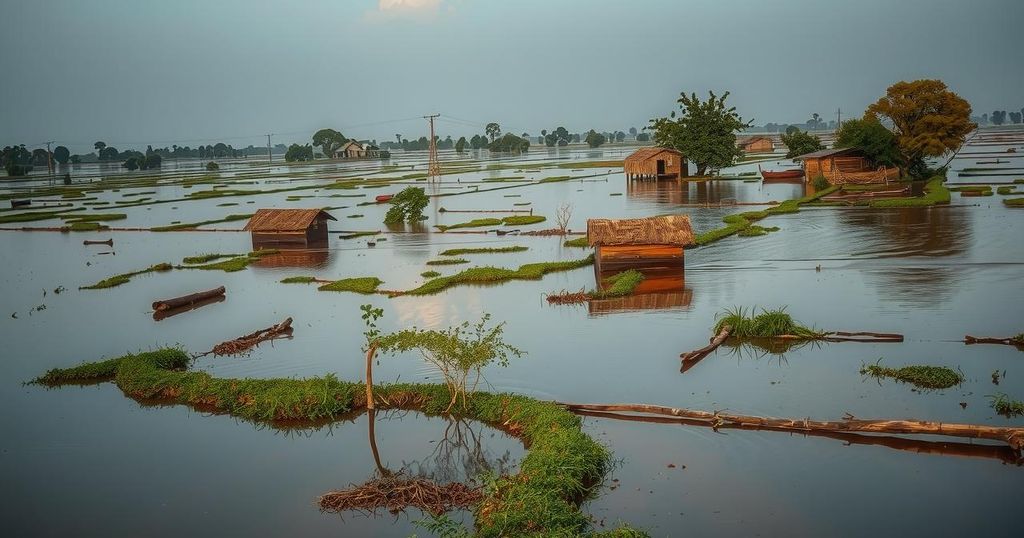Severe Flooding Affects Over One Million in South Sudan
Over one million people are affected by severe flooding in South Sudan due to heavy rains, with approximately 271,000 displaced. The flooding is especially severe in Northern Bahr el Ghazal and Unity states, and forecasts suggest up to 3.3 million may be impacted by December. The situation is compounded by significant food insecurity in the region.
Severe flooding in South Sudan, resulting from heavy rains, has left over one million individuals affected. As reported by the United Nations Office for the Coordination of Humanitarian Affairs (OCHA), approximately 271,000 people have been displaced across 42 of the nation’s 78 counties. The most severely impacted populations are located in Northern Bahr el Ghazal and Unity states, which comprise 40 percent of those affected. The agency has projected that the unprecedented flooding may impact up to 3.3 million people from September to December due to continued forecasts of heavy rainfall and river flows from Uganda. The flooding has adversely affected 15 critical supply routes, limiting physical access to essential goods and services. The situation in South Sudan is exacerbated by its designation as one of 18 global hunger hotspots, where food security is deteriorating significantly, according to UN assessments.
South Sudan has been facing significant challenges due to climate-related disasters, particularly flooding, which has become increasingly prolonged and severe due to changing weather patterns. These circumstances have not only contributed to widespread displacement and infrastructural damage but have also aggravated pre-existing vulnerabilities, making large segments of the population more susceptible to food insecurity. The UN has consistently highlighted the worsening humanitarian conditions, with this flooding event being particularly alarming, considering that it could affect millions in the coming months as seasonal rains continue.
In summary, the extensive flooding in South Sudan illustrates a dire humanitarian situation impacting over one million residents, primarily through displacement and loss of access to essential resources. The predictions of continued rainfall and further escalated flooding raise serious concerns regarding food security in a nation already suffering from significant challenges. The international community must prioritize immediate humanitarian assistance and long-term strategies to address the devastating impact of climate change in the region.
Original Source: www.thehansindia.com




Post Comment